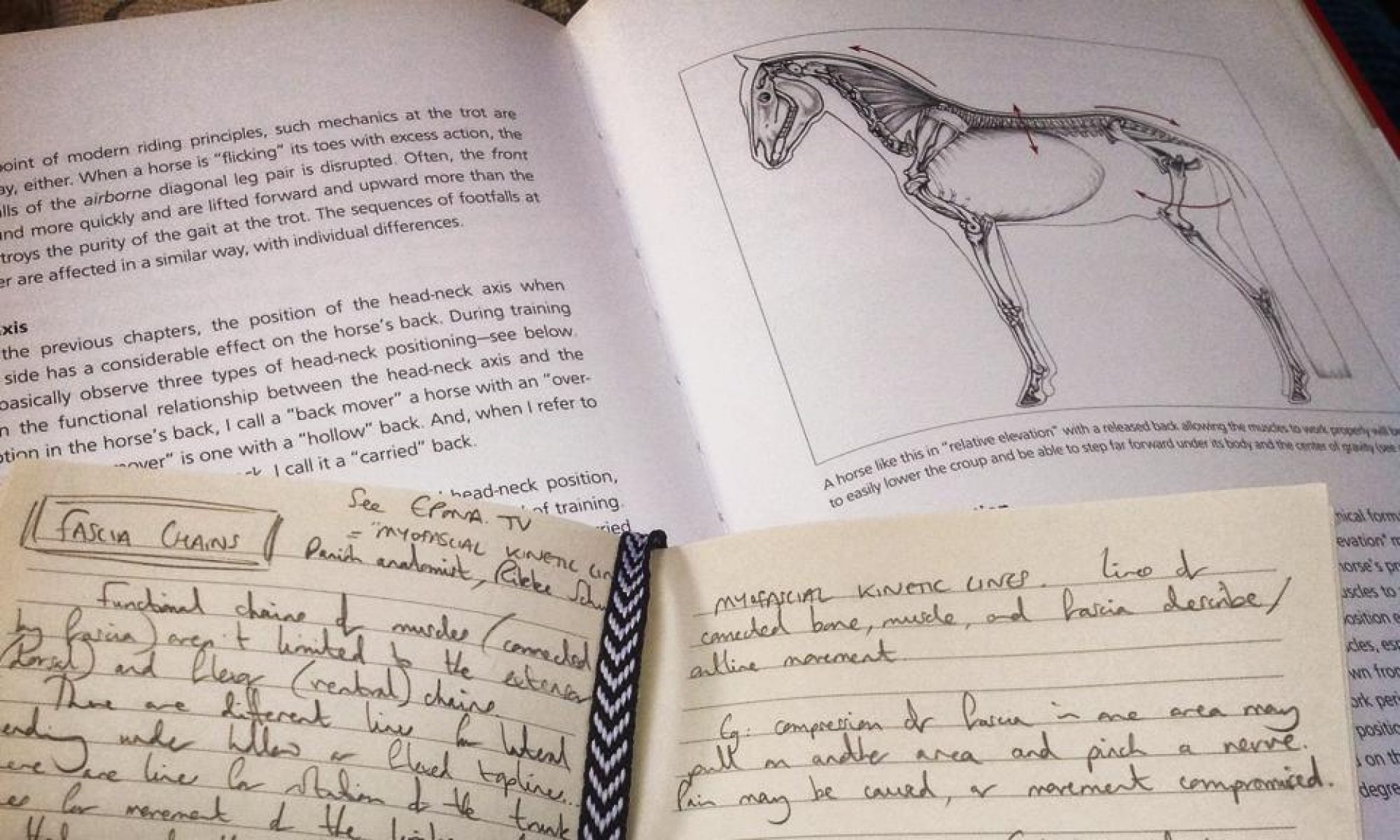When learning something new, if aspects of it contradict things you felt you knew you can experience discomfort. Cognitive dissonance. This seems to be very common in horseworld, as we catch up with the rest of the animal care/training industry.
I really appreciate when horsepeople who have gone through these transitions leave evidence of it up to see. Perhaps they should remove it, so as to not spread mixed messages, but as someone paying attention to the process that horseworld is going through it’s kind of fascinating.
Examples I’ve seen recently include things like this… Trying to marry the current science of motivation with outdated ideas of herd hierarchy and dominance… Applying aversive pressure and clicking on the release of the pressure (a mix of -R and +R that risks souring or confusing the horse)… Instructing on the importance of praising the horse’s good choices, whilst training it with NH in such a way that it doesn’t actually have a real choice… And transitioning to +R but avoiding the use of a clicker as a bridge (as though a clicker is too much like the trappings of loopy, frivolous, unserious horsemanship), before ultimately settling on it because it’s just actually really useful.
And these are examples by people I hugely admire. People that have dedicated huge parts of their lives to studying and improving, constantly trying to find the best way to work with horses and exploring many paths as they go.
Anyway, I thought it was funny because I discovered one of my own transitional hiccups the other day.
This all very much depends on the details of any given circumstance, it’s not a blanket rule… but here’s the example.
With pushy -R, the release of pressure (and more broadly, the cessation of “work”) is the “reward”. It isn’t actually a reward at all, technically, but it’s what the horse is working towards so people use this word.
For the end of work to be a reward, the work must be either unpleasant or tiring (if people are unhappy or overworked/stressed in their own human jobs then it would make sense they’d think of it in these terms, I guess). Or there must be something else you’d rather do. Or you must have done enough to feel satisfied. Otherwise you wouldn’t want it to end.
I always have an “ask little” approach, always have (even before learning about +R, emotions, etc.). And I think that’s still valid. Don’t push, make sure to set them up for success, end on a high note.
But there’s a tipping point, for some individuals in some circumstances on some days. A tipping point, where ending early might not make as much sense.
We finish there to say, “well done! That was it! You can rest now.” And that’s valid most of the time. But it is mostly valid because of the underlying assumption that what we’re doing with the horse is “work” and we believe that work is inherently undesirable.
Maybe though, on this day, the horse doesn’t consider it “work”? Maybe, you’ve got a work-sour horse like Diego, who doesn’t always enjoy the arena, who gives you lots of signs of conflict about going there, staying there, even perhaps about coming in from the field or being groomed or tacked up or whatever it might be (all the things associated with work). But maybe, on this day, he strides out to the arena with a swinging pace and pricked ears. Maybe he thinks it’s fun. Maybe he gives you everything you ask for with enthusiasm. Maybe he gives you more than you expected. Maybe, the moment you choose to “end on a high note” is him just getting started. Maybe ending the session early is a sad thing for that horse on that day.
When the “work” is rewarding and kept within their comfort zone (and just occasionally hovering around the edges of it), perhaps ending the session isn’t the “reward” that it would have been when you were using pushier methods?
So I thought it was funny that even I (someone very soft) would discover sneaky ways in which old ideas were still influencing my horsemanship decisions. But I don’t feel so bad about it, because I see evidence of the same in most of my +R heroes. Transitional moments where we all fall into old habits/beliefs.
